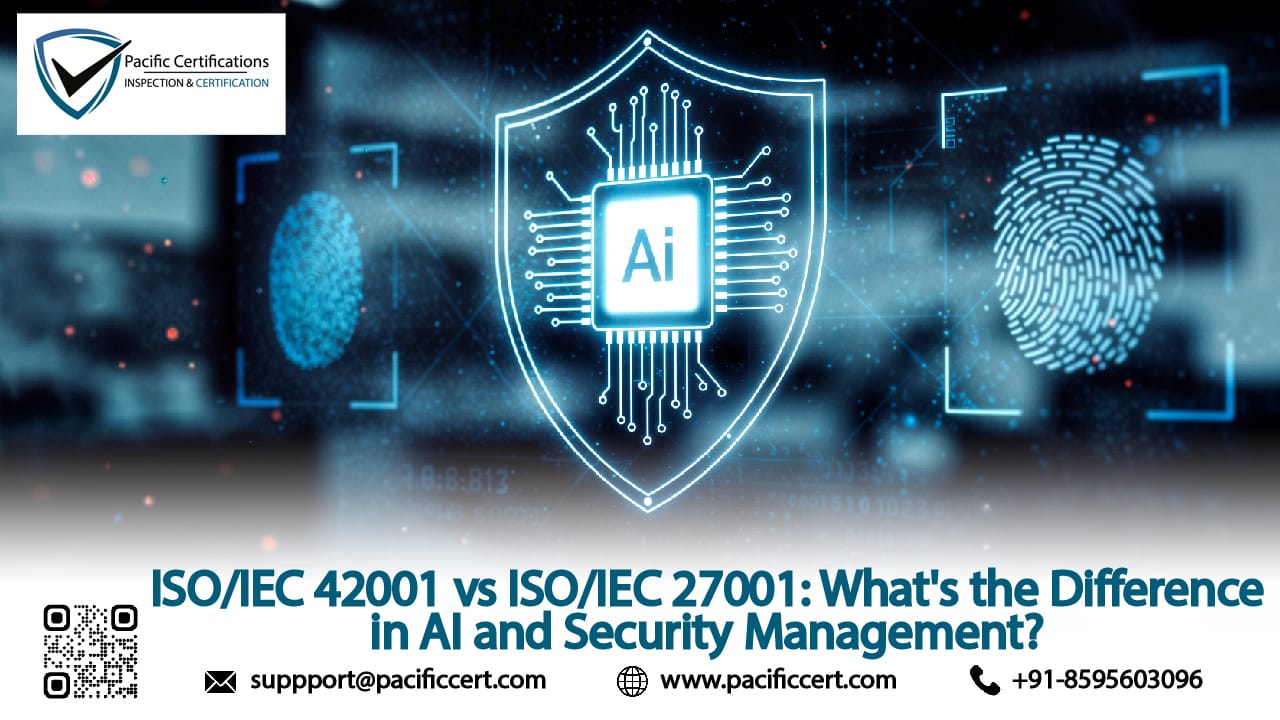
ISO Certifications for E-Commerce Sector
For e-commerce businesses, implementing ISO standards ensures strong security & data management and seamless digital operations. ISO/IEC 27001 is critical for safeguarding information assets by establishing an Information Security Management System (ISMS).
It helps e-commerce platforms protect sensitive customer data and internal business information from cyberattacks and breaches.
ISO/IEC 27701, which is built on ISO 27001 by focusing on Privacy Information Management Systems (PIMS), ensures compliance with privacy laws like GDPR by managing personal data effectively and securely. ISO/IEC 20000-1 offers a framework for managing IT service delivery, ensuring smooth and efficient operations.
Additionally, ISO 22301 strengthens business continuity by preparing organizations to handle disruptions such as cyberattacks or system outages, ensuring uninterrupted services.
Together, these ISO standards enable e-commerce firms to maintain security and ensure compliance in a fast-evolving digital environment.
Applicable ISO Standards
These certifications can help e-commerce companies to increase their operational efficiency and meet regulatory requirements. Here's an overview of relevant ISO standards that e-commerce companies should consider for certification:
ISO 9001: Quality Management Systems (QMS)
- ISO 9001 is the international standard for quality management systems. Implementing ISO 9001 can help e-commerce companies enhance customer satisfaction by ensuring consistent quality, improving operational efficiency, and fostering a culture of continuous improvement.
ISO 27001: Information Security Management Systems (ISMS)
- ISO 27001 is the leading international standard focused on information security. It outlines the requirements for establishing, implementing, maintaining, and continually improving an information security management system (ISMS).
ISO 14001: Environmental Management Systems (EMS)
- ISO 14001 specifies the requirements for an effective environmental management system. It provides a framework that an organization can follow, rather than establishing environmental performance requirements.
ISO 22301: Business Continuity Management Systems
- ISO 22301 can ensure that they have strong plans in place to maintain critical operations during times of crisis, thereby minimizing downtime and maintaining customer service.
ISO/IEC 20000-1: Service Management System (SMS)
- ISO/IEC 20000-1 specifies requirements for an organization to establish, implement, maintain, and continually improve a service management system (SMS).
Click here to find out more applicable standards to your industry
For e-commerce companies, the selection of appropriate ISO standards for certification depends on their specific operational priorities, regulatory requirements, and customer expectations, contact us today at support@pacificcert.com to find our the suitable ISO standard for your company!
Requirements of ISO Certifications for E-Commerce Industry

ISO certification for e-commerce companies entails a rigorous process that involves meeting specific requirements. Below are the requirements and benefits of ISO certification for e-commerce companies:
Requirements of ISO Certifications for E-Commerce Industry
ISO/IEC 27001 (Information Security Management System)
- Identify and assess potential risks to information assets.
- Implement security controls to protect sensitive data.
- Conduct regular audits and risk assessments.
- Develop an incident response plan for data breaches.
ISO/IEC 27701 (Privacy Information Management System)
- Maintain compliance with data privacy laws like GDPR or CCPA.
- Implement policies for collecting, storing, and processing personal data.
- Provide transparency on data usage to customers.
- Conduct privacy impact assessments regularly.
ISO/IEC 20000-1 (IT Service Management System)
- Develop structured processes for IT service delivery and support.
- Ensure continuous monitoring of services (e.g., website uptime, payment gateways).
- Define roles and responsibilities for IT management.
- Perform internal and external audits to assess service quality.
ISO 22301 (Business Continuity Management System)
- Identify critical operations and potential risks (e.g., cyberattacks).
- Develop recovery strategies and backup systems.
- Conduct regular business continuity drills.
- Monitor and improve resilience to disruptions.
Benefits of ISO Certifications for E-Commerce Industry
- Data Security and Customer Trust: ISO 27001 and 27701 ensure that personal data and financial transactions are secure, building trust with customers and partners.
- Regulatory Compliance: Meeting legal requirements, such as GDPR, minimizes the risk of fines and legal issues.
- Operational Efficiency: ISO 20000-1 streamlines IT service delivery, ensuring seamless customer experiences across platforms.
- Business Continuity and Risk Management: ISO 22301 prepares businesses to handle disruptions smoothly, reducing downtime and ensuring uninterrupted services.
- Global Market Access: ISO-certified e-commerce businesses gain credibility and attract customers in global markets.
- Customer Loyalty: Enhanced security, privacy compliance, and service quality lead to higher customer satisfaction and retention.
- Certifications make businesses stand out in a crowded digital marketplace.

Overall, the process of obtaining ISO certification requires commitment and investment but offers significant benefits in terms of operational efficiency, customer satisfaction and competitive positioning.
Pacific Certifications is accredited by ABIS, in case you need support with ISO certification for your E- commerce business, please contact us at suppport@pacificcert.com or +91-8595603096.

Read More: ISO certification for Data Management and Analytics companies and ISO applicable standards


